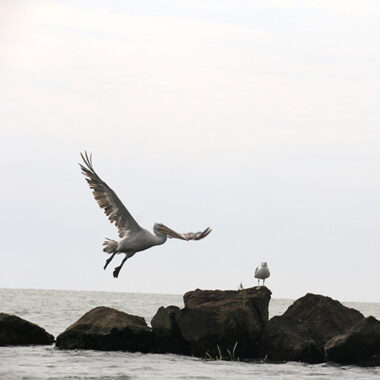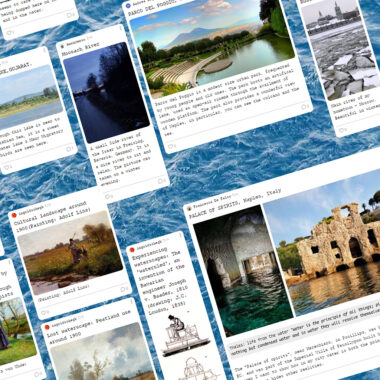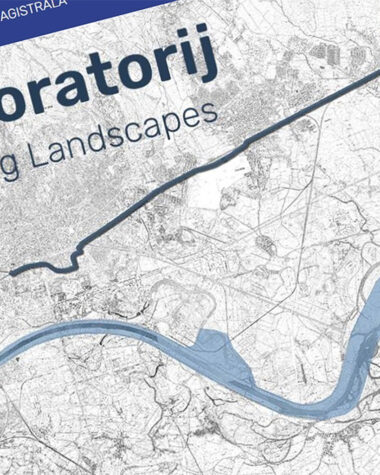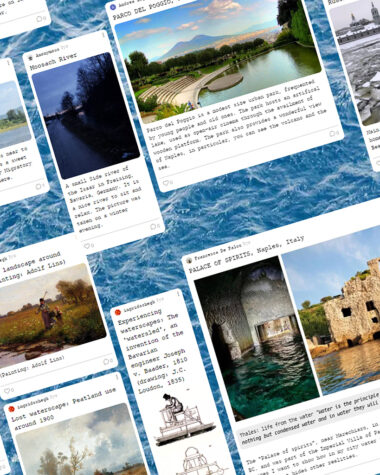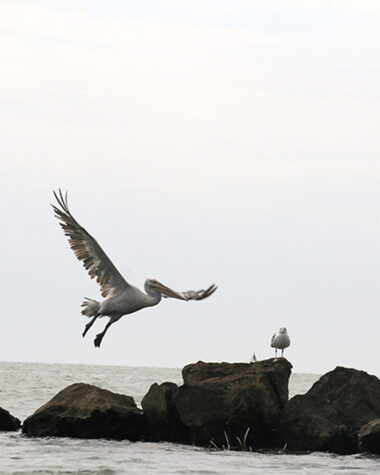
The InnoLAND project
The InnoLAND Erasmus+ Strategic Partnership aims to facilitate transparency and recognition of skills and qualifications of landscape architecture professionals in the European Union by developing a Common Training Framework for the Profession along with relevant tools to support its implementation. The project is co-funded by the European Union Erasmus+ programme.
The consortium consists of five higher education institutions covering geographical Europe from the North to the South – Finland, Lithuania, Hungary, Austria, and Portugal – contributing knowledge and experience on varying landscapes, study programmes, regulation of the profession, and European mobility experience. Additionally, two landscape architecture associations join the project to ensure access to the most prominent landscape architecture knowledge and education (LE:NOTRE Institute, the Netherlands), the target group of landscape architecture professionals, and access to the responsible bodies in the European Commission (IFLA-Europe, Belgium).
Specific objectives of the InnoLAND project:
- Implementing Professional Qualifications Directive requirements to foster automatic recognition of the LA profession in Europe;
- Establishing pan-European quality standards for LA study programmes and homogenizing landscape architecture education in Europe;
- Developing an exemplary master study programme framework in line with the European Common Training Framework.
Reports of the InnoLAND project
The project developed the following reports:
Report 1: Recommendations for design & implementation of the European Common Training Framework for Landscape Architecture in the EU member states
The report includes the CTF design methodology, and the collaborative process with stakeholders. The proposed content of the CTF consists of the context of the profession; the demographics of the profession; and the core of a common training framework. The core defines the education requirements (based on IFLA, ECLAS documents and updates), and requirements for professional practice (including a code of conduct), continuous professional development, and legal recognition procedures. The collaborative process includes the development of several drafts with the stakeholders, consultation, and information during the General Assemblies of IFLA Europe and ECLAS.
The report with recommendations can be downloaded here.
Report 2: A Pan-European Common Training Framework for Landscape Architecture
InnoLAND developed a draft for a CTF in close collaboration with the European Region of the International Federation of Landscape Architects (IFLA Europe) and the European Council of Landscape Architecture Schools (ECLAS). For this, InnoLAND carried out a collaborative process. The principles of the first draft were approved by ECLAS and the Executive Committee of IFLA Europe. IFLA Europe delegates gave their feedback on the final draft and in Appendix VI there is a process report on this.
As a next step, a pilot test was performed in a series of European countries. In a parallel process communication took place with the EU Directorate for the Internal Market (DG GROW). The process resulted in an improvement of the proposed CTF which is more concise, formulated in general terms, and is complying with the national standards in the piloted countries.
The Common Training Framework consists of three parts. Firstly, an Explanatory Memorandum presents the background and the importance of landscape architecture, the new definition of the profession, the demography of the profession, and the development of landscape architecture education. Secondly, the Recitals present the European legislation and regulation for a professional qualification, national regulation, the collaborative process with the main landscape architecture organisations in Europe, the communication with DG GROW, and the relevance of regulation on an EU level. This is followed by the core of the Common Training Framework that defines the tasks of landscape architects and set standards for professional academic qualification. The CTF contains articles on postgraduate traineeship, national registration, continuous professional development, and compliance with a code of professional standards and ethics. The Annex of the CTF gives more detailed guidance.
The agreed CTF will be used for updating the professional recognition documents of IFLA Europe and the educational guidance for landscape architecture schools of ECLAS. It will serve as a benchmark document for peer review and validation of landscape architecture programmes. The report also presents in Appendix IV a list of landscape architecture programmes in the EU, Europe, and beyond.
The full report that includes the proposed CTF can be downloaded here. If you are mainly interested in the core text of the CTF you can download that here.

The poster with the main text of the CTF can be downloaded here.
The third report on the exemplar master programme with a set of modules will be soon available.
Landscape Architecture in Europe
Landscape Architecture aims to create safe, sustainable, and resilient environments that evolve and endure over time. Landscape architecture is perfectly positioned to respond to urgent issues of our time: e.g. mitigating climate change and contributing to the sustainability of both individual sites and cities as a whole. Higher education institutions play a major role in educating Landscape Architects who will make decisions about our future environment. Although European Union regulations (e.g. concerning the environment, competition in the internal EU market, or professional qualifications) have an impact on the professional work of landscape architects across Europe, there are still no standards regarding the content of the European higher education of Landscape Architects, inducing barriers for lifelong learning, recognition, and mobility.
Documents from related and previous processes
- Teaching Landscape Architecture in Europe – the EFLA Blue Book 1992
- IFLA Guidance Document for Recognition or Accreditation, 2008
- ECLAS Education Guide 2010
- IFLA-Europe-ECLAS Birmingham Document 2011
- IFLA-Europe-ECLAS Warsaw+ Document 2015
- IFLA UNESCO Charter for Landscape Architectural Education, 2012
- EU LAND 21: Guidelines on Revising and Developing Study Programmes in Landscape Architecture, 2019
Common Training Framework
A Common Training Framework (CTF) defines knowledge, skills, and competences necessary for the pursuit of a specific profession, defining what a person is able to know, understand and do. By harmonising the education and training requirements of landscape architecture professionals through the CTF, the EU will ensure the free movement of professionals across the EU. The Directive 2013/55/EU of the European Parliament and of the Council on the Recognition of Professional Qualifications and Regulation (PQD) emphasises, that Professional qualifications obtained under CTFs should automatically be recognised by the Member States. You can view the draft CTF as a final result of the InnoLAND project that is approved by ECLAS and IFLA Europe here.
The renewed EU agenda for HE, adopted by the Commission in May 2017, identifies enhanced mobility and cooperation in higher education among its key goals. The Paris Communiqué (2018), highlighting priority activities in this area for the coming years, calls for securing a sustainable future through higher education. These ambitions are in line with the goal of the EU to create European Education Area by 2025, to promote mobility and academic recognition of qualifications for all EU citizens, leading to the free movement of workers – one of the four fundamental freedoms of the Union.
Collaborative process by ECLAS and IFLA Europe for the Common Training Framework
The existing frameworks for landscape architecture education that are established by ECLAS and IFLA Europe form important parts of the Common Training Framework for Landscape Architecture. At the same time, there is a need to update these to meet current and future challenges. For this, the InnoLAND project engaged in a collaborative process with representatives of ECLAS and IFLA Europe to make sure that there is a solid base that is co-created by the relevant stakeholders.
The CTF aims to fulfill the requirement imposed by Art. 49a of the PQD and serve as the most important instrument for the quality and competitiveness of higher education with regard to the profession of landscape architects in the EU. InnoLAND also resulted in a developed basis for recognition of landscape architecture study programmes by IFLA Europe and ECLAS, leading to increased advanced learning and study opportunities for landscape architects. The fulfillment of an important precondition for automatic recognition of landscape architecture professional qualification based on Art. 49a of the PQD contributes to increased mobility of high-level LA professionals across the EU; it improves the quality and global competitiveness of European Higher Education. It aims to help to reach Sustainable Development Goals and SDG Agenda 2030 as adopted by the UN (2015), the Paris Agreement on Climate Change (2016), and the European Green Deal (2019).
For more information about the project please visit the project fact sheet.
For an overview of the history of education guidance in Europe, including the tuning process and other projects, you may read this article.
Background information on the InnoLAND project and the CTF
If you have a specific question about the project, please contact us via office@ln-institute.org.
Documentation of the first InnoLAND Online Workshop 2021
Here you find the recordings of the kick-off of the collaborative process on the Common Training Framework (CTF) for Landscape Architecture held on Friday 15th of January 2021.
Part A:
Part 2:
Part 3: Questions and Answers
Documentation of the second InnoLAND Online Workshop on SDGs and EU-policies
Here you find the recordings of the second event for the collaborative process on the Common Training Framework (CTF) for Landscape Architecture held on Friday 26th of February 2021.
Over 40 participants from European countries and international colleagues were informed by Ellen Fetzer (ECLAS president) on the consequences of the Sustainable Development Goals. Roxana Triboi (LE:NOTRE Institute) presented an overview of the European Policies that relate to landscape and their possible impact on landscape architecture competences. Part of the event was a collaborative action that made use of a MURAL. The main parts of the discussion and the next steps are presented in the third recording.
Part 1. Introduction on SDGs – Ellen Fetzer
Part 2. Introduction on EU-policies: Roxana Triboi
Part 3. Discussion, question and answers, next steps
Slides of the combined PowerPoint presentation are here.
The MURAL with posts of the participants on the SDGs and EU-Policies.
An overview of the areas of knowledge, skills, and understanding of IFLA Europe, ECLAS, EULAND21, and new proposals by InnoLAND can be found here.
Documentation of the third InnoLAND Online Workshop
Here you find the presentation of the third event for the collaborative process on the Common Training Framework (CTF) for Landscape Architecture held on Friday April 16, 2021. You can download the powerpoint here.
You can see the recordings of the session here.
After an introduction by Gintaras Stauskis, coordinator of the InnoLAND project, some 40 participants from European countries and international colleagues were informed by Jeroen de Vries and Roxana Triboi (LE:NOTRE Institute) on the outcomes of a survey on the role of landscape architects and subject-specific and generic competences for landscape architecture. The participants discussed in small groups four themes: (1) core competences versus new competences (sustainability and policies), (2) acquiring and assessing competences in an integral way, (3) structure and duration of LA programmes, and (4) conversion masters.
In May and the first week of June 2021, the participants of the collaborative process worked on a draft paper on the content of the common training framework. Below you can see an overview of the steps of the process.
Documentation of the fourth InnoLAND Online Workshop
The session on Friday, May 7, 2021, focused on the results of the survey on Professional recognition in IFLA EUROPE countries: Problems and opportunities at the national level, followed by a discussion on the content of the draft CTF. There you also can see the process and next steps. You can find the complete presentation here. You can (re)view the recording of the presentations and discussion here.
Presentations at the ECLAS 2021 Stop and Think Conference
At the ECLAS 2021 Stop and Think conference the partners of the InnoLAND project and the collaborative process for drafting a CTF were presented twice. You can view the presentations below:
The content of the proposed CTF and the main discussion issues
Final Draft after testing the CTF in countries and discussion with DG GROW
From December 2021 until March 2022, the partners of the InnoLAND project and a number of delegates of IFLA Europe tested to what extent the draft proposal for the CTF is complying with the standards for the qualifications of landscape architects in their countries. This was done in countries where the profession is regulated (Austria, the Netherlands, Hungary, Slovenia) and where there is no regulation (Bulgaria, Finland, Iceland, Lithuania, Portugal), and where there is neither regulation nor recognition (Spain).
The main conclusions from the pilot testing are:
- The standards that are presented in the first draft are generally complying with the national standards in each country.
- The national standards, both in countries where the profession is regulated or where these are not regulated, are more generally formulated. It is better to move the more detailed aspects of the competences to an Annex to the guidance.
- The balance between theory and practice is not mentioned in regulations, however, the competences cover both. Naming the number of ECTS is too specific: when the competences are clear, there is no need to regulate this in detail.
- Guidelines are not considered in National Regulations, but since this is only a guideline in, the CTF this may not be problematic for compliance.
- The competence of understanding the needs and expectations of the actual and potential users and relevant actors is not specified.
- Research is not mentioned in professional standards, but in general National Regulations for Higher Education, it is required that graduates acquire research competences.
- Productive landscapes are not mentioned and may be too specific for the CTF, it is suggested to include these in the guidelines.
- Compliance with a code of ethics is not well integrated into the standards.
In countries where the profession is not regulated, a register for landscape architects does not exist. Here landscape architects are not required to complete a post-graduate traineeship nor to take part in continuous professional development. Since there is not yet a regulation in these countries, this does not affect the formulation of the CTF.
This resulted in a final draft for the CTF that in September 2022 was presented for approval to the Heads of Schools meeting and the General Assembly of the ECLAS 2022 Conference in Ljubljana and in October 2022 at the IFLA Europe General Assembly in Helsinki. A presentation on the final draft of the CTF can be found here. IFLA Europe delegates gave their feedback until December 2022 and their comments were integrated into the final draft CTF.
Now that the draft is approved by ECLAS and IFLA Europe the CTF will function as a basis for updating the ECLAS Guidance for Education and the IFLA Europe professional recognition of landscape education documents.
The process for formally establishing the CTF as an EU regulation will be continued by a working party of IFLA Europe, ECLAS, and the LE:NOTRE Institute.
